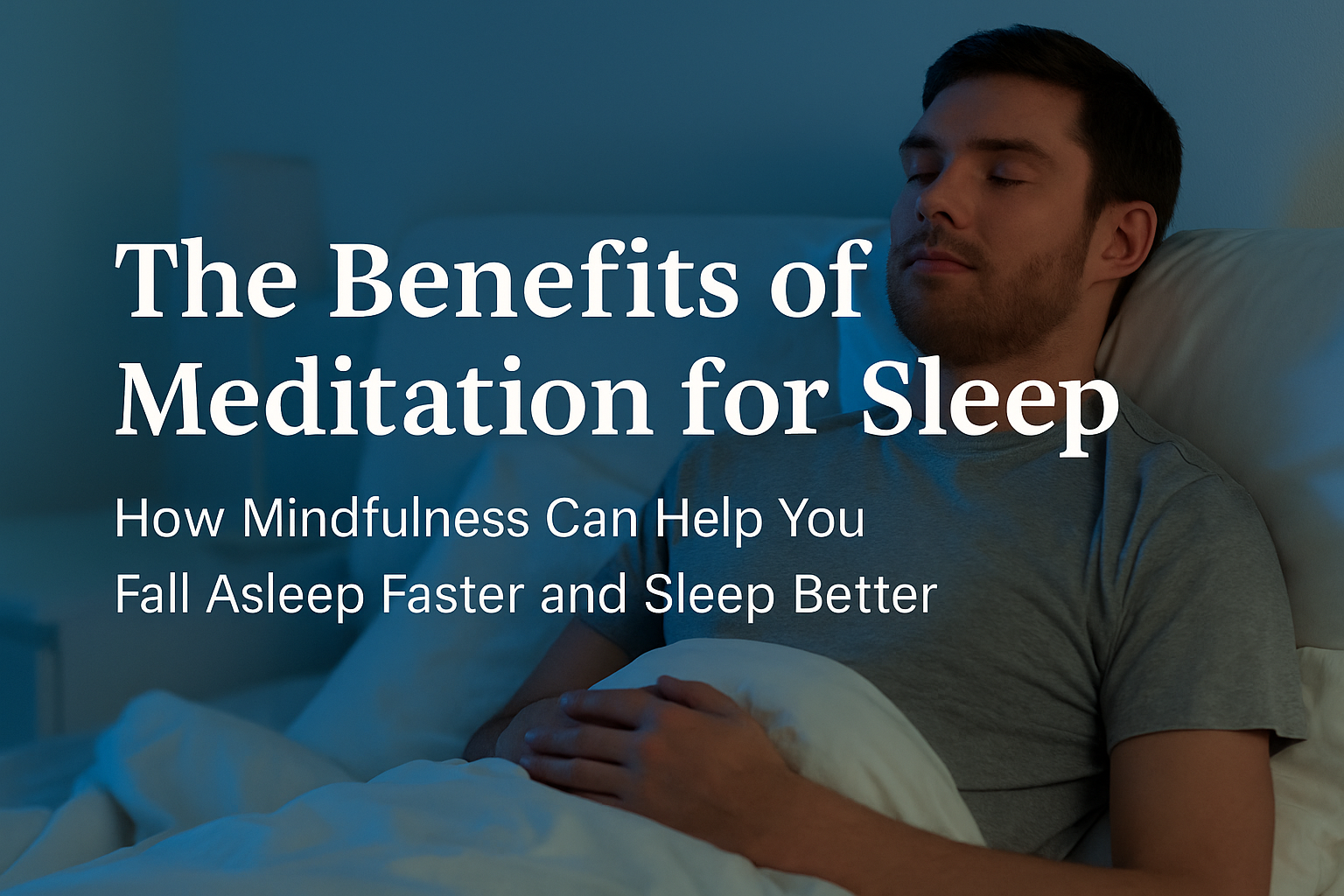The Benefits of Meditation for Sleep
How Mindfulness Can Help You Fall Asleep Faster and Sleep Better
Tired But Can’t Sleep?
You’re exhausted, you’ve turned off the lights, and you’re finally lying in bed — but your mind won’t cooperate. Racing thoughts, tension in the body, and that frustrating cycle of tossing and turning make it feel impossible to rest.
If this sounds familiar, you’re not alone. Sleep challenges affect millions of people. Fortunately, there’s a natural, drug-free tool that’s gaining scientific attention: **meditation**. And yes — it can help you sleep.
In this article, we’ll explore The Benefits of Meditation for Sleep, how it works, and simple ways to get started, even if you’ve never meditated before.
—
How Meditation Supports Better Sleep
1. It Calms the Nervous System
Meditation helps shift your body out of the “fight-or-flight” stress response into the “rest-and-digest” mode. This transition is essential for quality sleep. By practicing meditation before bed, you reduce cortisol levels (the stress hormone) and lower your heart rate — preparing your body to rest.
2. It Reduces Racing Thoughts
One of the biggest barriers to sleep is a busy mind. Meditation teaches you to observe your thoughts without getting caught up in them. Over time, this trains your brain to let go of mental chatter more easily — especially helpful during those restless nights.
3. It Relaxes the Body
Many meditations include body scanning or progressive relaxation techniques. These methods release muscle tension, relax tight areas, and bring awareness to physical sensations, helping the body settle down for sleep.
—
Scientific Evidence: What the Research Says
Improved Sleep Quality
Studies have shown that mindfulness meditation can significantly improve sleep quality. One randomized controlled trial published in *JAMA Internal Medicine* found that participants who practiced meditation had less insomnia, fatigue, and depression than those in a sleep education program.
Reduced Insomnia Symptoms
Meditation has been particularly effective in reducing insomnia severity. Even short, consistent sessions — around 10–20 minutes a day — have been linked to fewer sleep disruptions and quicker sleep onset.
—
Types of Meditation for Better Sleep
Guided Meditation
Audio or app-based sessions walk you through relaxation techniques or visualizations. Great for beginners or those who struggle with silence.
Body Scan Meditation
This involves slowly moving attention through the body to release tension. It’s calming, grounding, and especially helpful right before bed.
Breath Awareness
Focusing on the rhythm of your breath helps anchor your mind and slows your physiological state — a powerful combination for winding down.
—
When and How to Meditate for Sleep
- Best Time: Evening or right before bed
- Ideal Duration: 10–20 minutes (consistency matters more than length)
- Environment: Dim lighting, quiet space, comfortable posture (even lying down)
Try combining meditation with your bedtime routine: after brushing your teeth, play a guided session or take 5 deep mindful breaths in bed. Let it become a signal to your brain: “It’s time to sleep.”
—
Conclusion: Sleep Better, Naturally
Sleep doesn’t always come easily — but meditation offers a simple, science-backed way to support it. By calming your body, quieting your mind, and helping you let go of tension, meditation sets the stage for deeper, more restful sleep.
You don’t need to force sleep — you just need to create the space for it to arrive. Meditation helps you do exactly that.
✨ Want to try it tonight? Download our free bedtime meditation guide or subscribe for weekly calming practices to help you sleep peacefully and wake up refreshed.

Leave a Reply